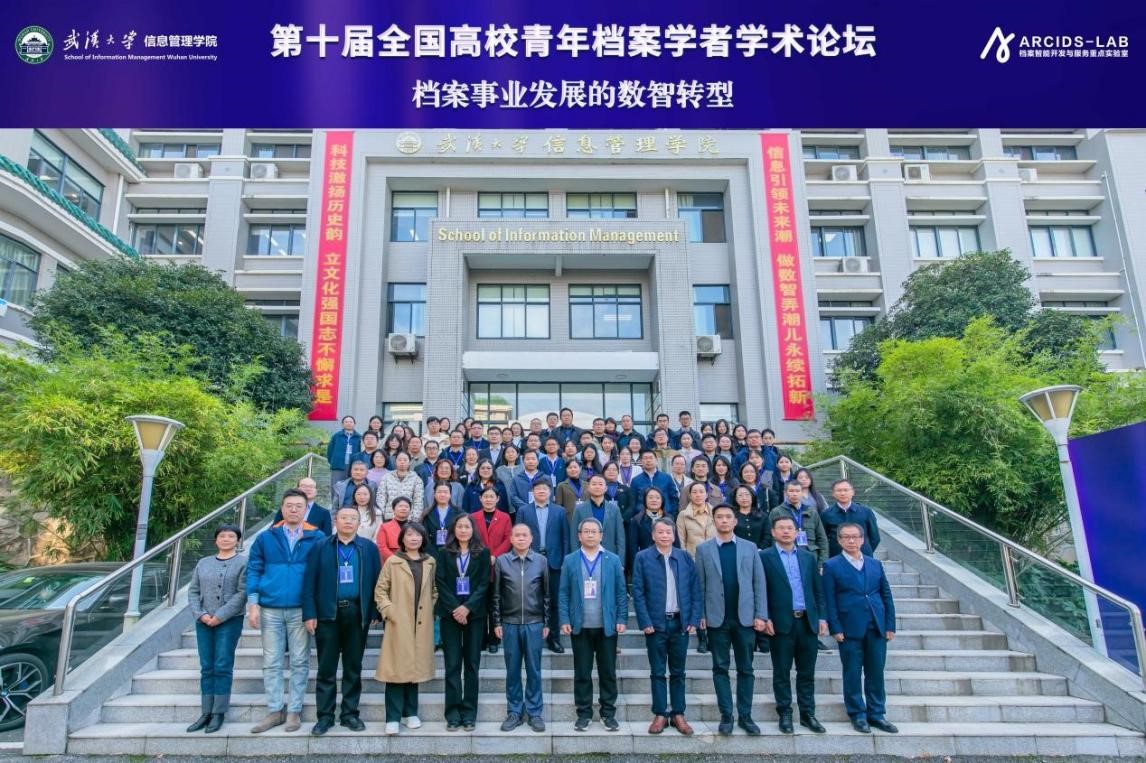From November 30th to December 1st, the 10th National Forum for Young Archival Scholars at Colleges and Universities was successfully held at Wuhan University. Organized by the School of Information Management at Wuhan University and hosted by the Key Laboratory of Intelligent Development and Service of Archives under the National Archives Administration, the forum was cosponsored by the Wuhan University Center for Governmental Affairs Management Research and the Wuhan Data Intelligence Research Institute at Wuhan University. More than 100 young archival scholars, experts, and industry representatives from universities across the country gathered to discuss the theme of Digital Transformation of Archival Causes.
The opening ceremony was presided over by Ping Wang, Director of the Department of Archives and Government Information Studies at Wuhan University. Falin Zhang, Associate Dean of the Academy of Humanities and Social Sciences, and Yaolin Jiang, Deputy Secretary of the CPC Committee of the School of Information Management, delivered welcome remarks. Falin Zhang extended a warm welcome to all guests, experts, and young archival scholars on behalf of Wuhan University. He emphasized that the digital intelligent era brings unprecedented opportunities and challenges to the archival causes, and Wuhan University has been dedicated to exploring new directions in scientific research, innovative talent cultivation models, and new forms of social services under a digital environment. Promoting interdisciplinary integration in the humanities and social sciences will provide strong support for the digital transformation of archival causes.
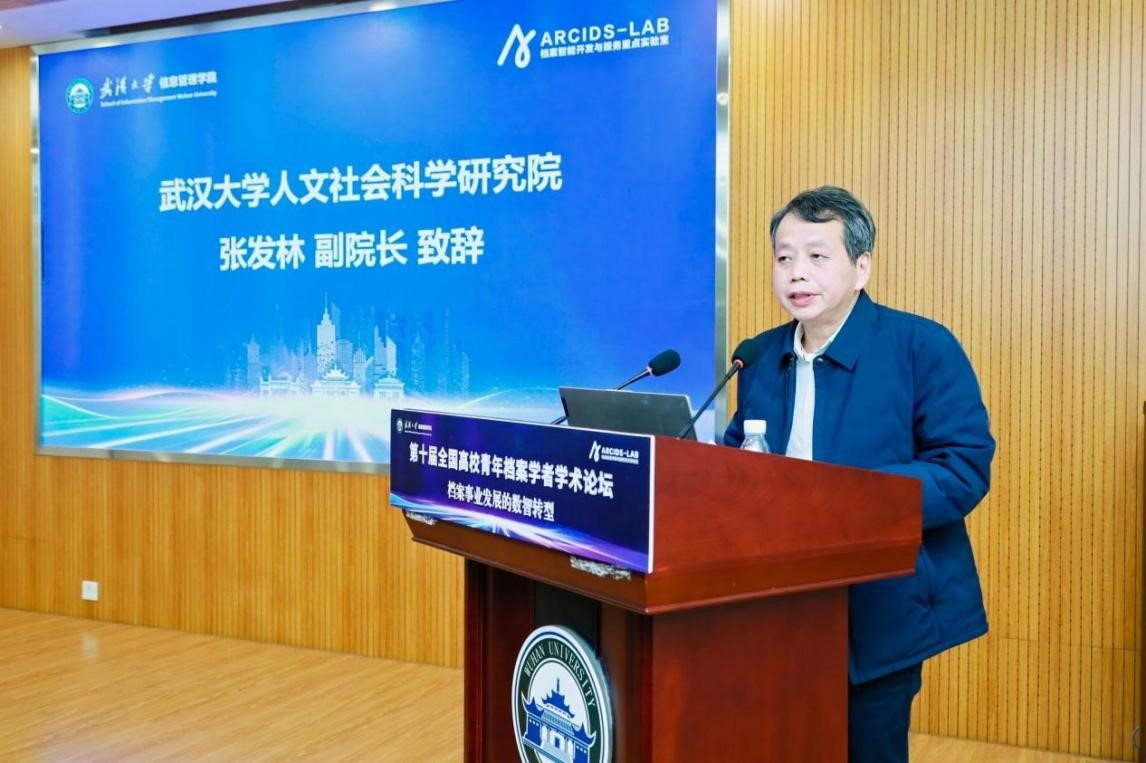
Yaolin Jiang welcomed the experts and young scholars and reviewed the achievements made by the School of Information Management at Wuhan University in the development of archival science. He pointed out that digital transformation has become an inevitable path for highquality and sustainable development in the archival field. Young scholars should not only focus on academic research but also actively engage in industry practices to address realworld challenges faced by archival causes in the digital age. They should serve as bridges and links to cultivate more outstanding archival talents that meet the needs of the digital era.
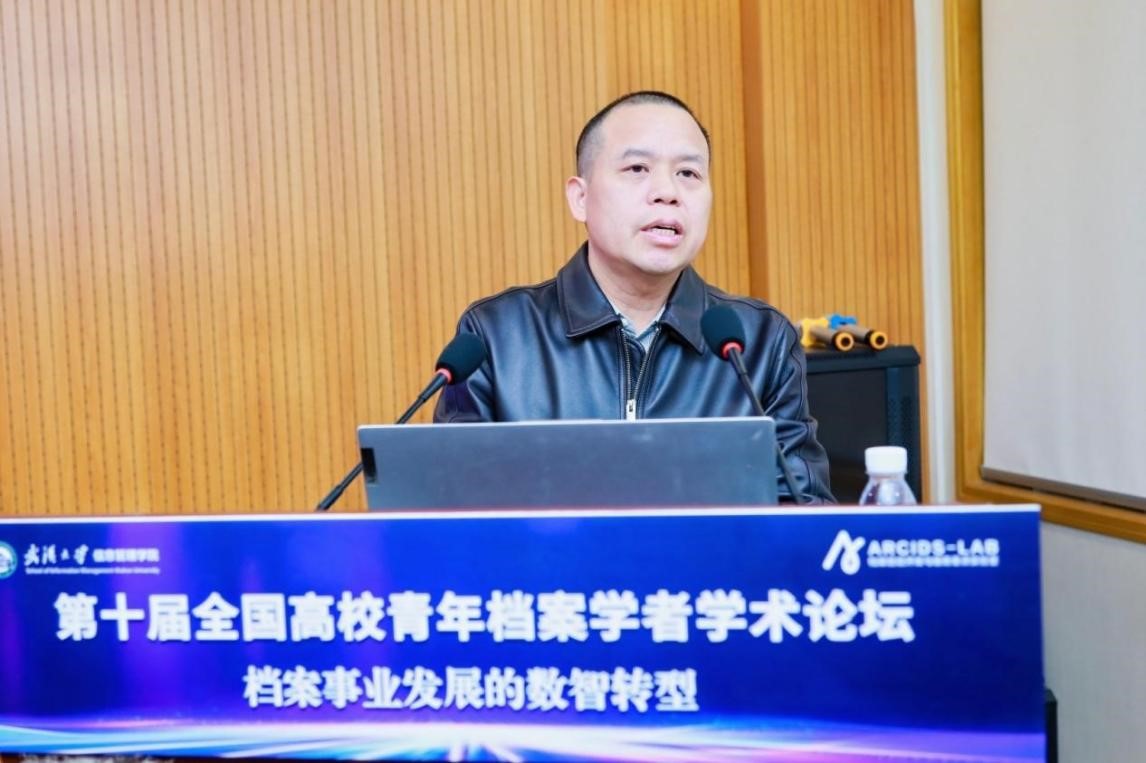
Following the opening ceremony, participants engaged in a crossdisciplinary forum to inspire intellectual exchange and explore new horizons in archival science.
Cui Huang, Director of the Information Resource Management Department at Zhejiang University’s School of Public Administration, presented a report titled Empowerment of Digital Intelligence in Information Resource Management. She discussed how research methods and objects in information resource management have expanded and innovated in the digital intelligence era, providing analysis through practical scenarios.
Li Niu, Associate Dean of the School of Information Resource Management at Renmin University of China, delivered a presentation titled Three Transformations of Innovative Drivers in New Quality Productivity of Archives. Starting with the gap between national high-quality development and archival work, he proposed three transformations driven by innovation in new quality productivity of archives.
Yanchang Zhao, Dean of the School of Information Resource Management at Liaoning University and Director of the Department of Archival Science, delivered a report titled Teaching and Research in Archival Science Courses under the Perspective of Curriculum Ideological and Political Education, sharing the teaching and research achievements made by the Archival Science program at Liaoning University in the realm of curriculum ideological and political education.


Linxing Zhou, Director of the Department of Archival Science at the School of Cultural Heritage and Information Management, Shanghai University, delivered a report titled The Funnel-shaped Archival Value Assessment Model: A Value Recognition Method Based on Social Relationships. This report addresses and corrects the misconception of the archival value assessment method based on monadic social relationships and proposes a funnel-shaped model for assessing archival value from the perspective of n-ary social relationships along with its mechanism of action.
Qikai Cheng, Associate Professor at the School of Information Management at Wuhan University, delivered a report titled Intelligent Archival Management and Applications Driven by Large Models, introducing large models' empowerment in smart archival management and development from three aspects: archival layout understanding, archival data understanding, and archival intelligent applications.
Enmei Song, Director of the Journal Center at the School of Information Management, Wuhan University, presented a report titled New Explorations in Information Resource Management Journals–Taking Documentation, Information & Knowledge (in Chinese) as an Example. She introduced the exploration and development of the journal Documentation, Information & Knowledge (in Chinese) from aspects such as the basic situation of the journal, representative papers and special topics, and journal brand activities.
To promote more extensive and in-depth discussions, the conference set up four parallel sub-forums for young scholars to exchange ideas, each focusing on different hot spots and cutting-edge issues in the field of archival science. The themes are as follows:
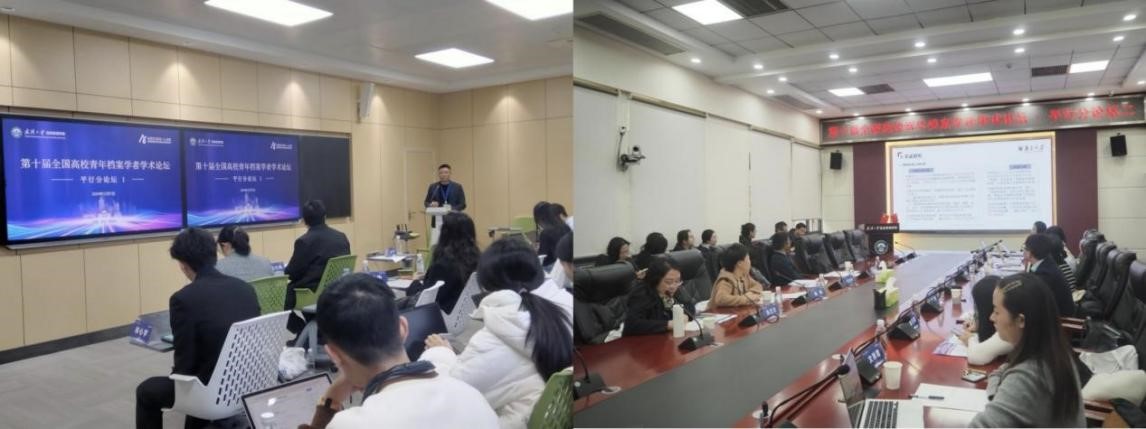
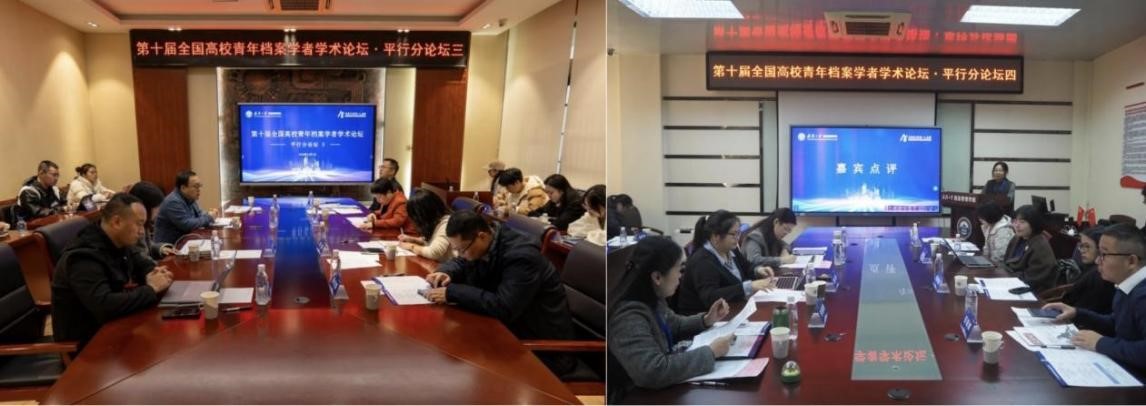
Parallel Sub-Forum 1 – Wisdom Enlightenment · New Realms of Archival Exploration. Young scholars discussed important issues such as research on Chinese archival discourse construction, archival data governance, archival narrative development, archival causes development, and the educational value of archival document heritage. They analyzed the current development status and existing problems.
Parallel Sub-Forum 2 – Innovation Integration · Frontier of Smart Archives. Young scholars focused on significant issues like the elementization of archival data, AI empowerment of archival management and development, personal digital archiving behavior, and archival cultural services. They shared their latest research findings and innovative perspectives. Additionally, they exchanged views on digital archival resources in state-owned enterprises, digital transformation of archival culture, and the value and application of archival data.
Parallel Sub-Forum 3 – Critical Thinking Quest · Long Voyage of Smart Archives. Scholars addressed the forefront perspective and innovative thinking in archival studies regarding issues such as archival responsibility in scientific research integrity building, evidential effectiveness of electronic archives, risks of digital transformation in archival management, and the single-track system management of electronic archives under the background of digital transformation. They also conducted in-depth discussions on sensitive information classification and grading criteria, archival opening review, archival data security governance, and proposing suggestions.
Parallel Sub-Forum 4 – Wisdom Clash · Inspiration of Archival Thinking. Participants delved into topics such as civil affairs archival certification under the backdrop of digital government, new quality productivity and scientific research archival data sharing interaction promotion, the establishment of a pharmacist's integrity archive, and ethnographic methods-based electronic file management research. They analyzed the current status, mechanisms, and paths. Additionally, there were lively discussions on emerging research topics like the dissemination of archival document heritage under the “Generation Z” perspective, the revitalization of archival document heritage in the context of deep integration of cultural technology, and archival data asset governance.
After the forum, attendees toured the National Archives Administration Key Laboratory of Intelligent Development and Service of Archives, the Wuhan University Cultural Heritage Intelligent Computing Laboratory, and the Wuhan University History Museum, experiencing firsthand the innovative research outcomes in archival science and cultural heritage at Wuhan University.
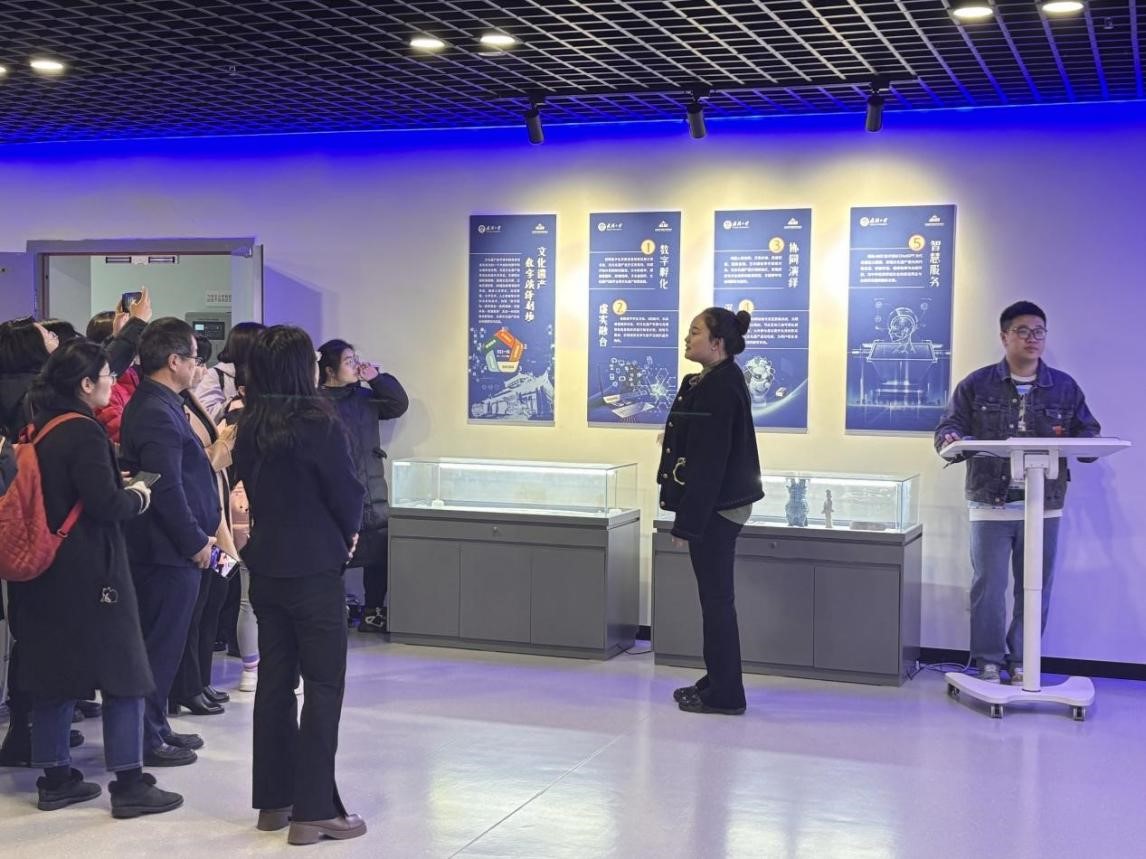
This forum built an open, shared platform for exchange and mutual learning, contributing valuable insights and ideas to the high-quality development and digital transformation of archival causes. Young scholars seized this opportunity to actively exchange ideas, injecting strong momentum into the future development of archival disciplines.
The National Forum for Young Archival Scholars at Colleges and Universities, successfully held for the first time at Liaoning University in 2014, has become an important academic exchange event in the archival community. The forum aims to provide a stage for young archival scholars from colleges and universities to showcase their research achievements, exchange academic thoughts, and jointly plan for disciplinary development.
